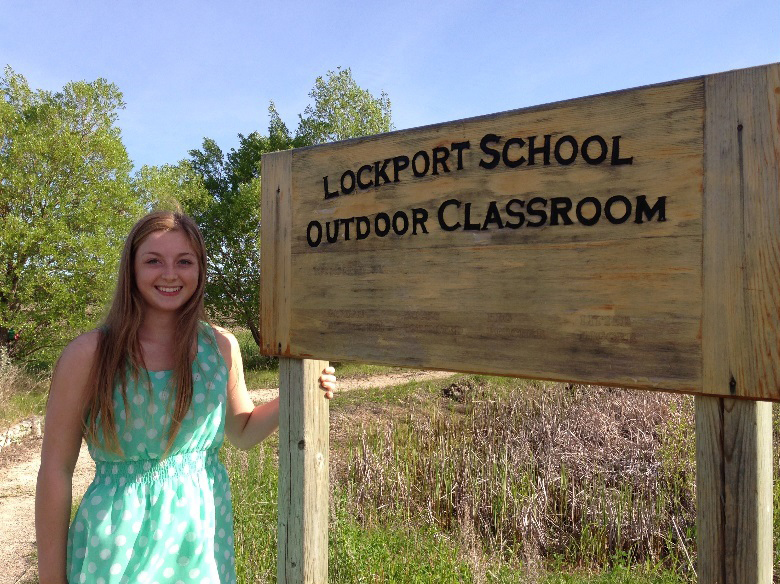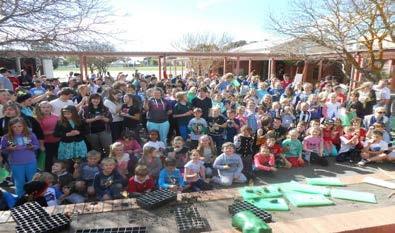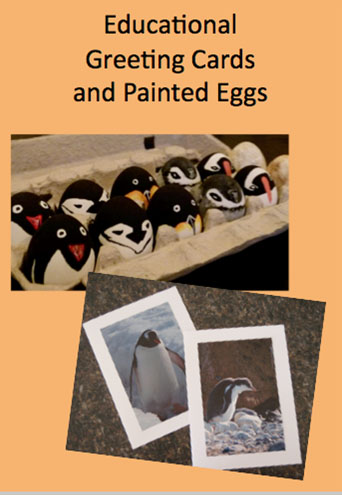2014 Lockport, Manitoba, Canada

According to Kailey Evans children need to spend more time outside. As a result of spending less time outside, “children aren’t thinking about the environment or how to take proper care of their watershed.” She suggested creating an outdoor pond for students to do experiments, dip for water bugs, and learn more about water.
Kailey saw the perfect fit at a nearby school, where an outdoor classroom was already in place. This special classroom means a lot to Kailey: “When I was in grade seven at Lockport, this outdoor classroom had just started. The pond had been dug out, but it was never able to retain water so we could never use this pond to its full potential.”
Thanks to a generous contribution from Nutrien, the dugout is now a pond, and students are already dipping for bugs! As Kailey has pointed out: “Environmental education provides the capability and skills over time to analyze environmental issues, engage in problem solving, and take action to sustain and improve the environment.”

